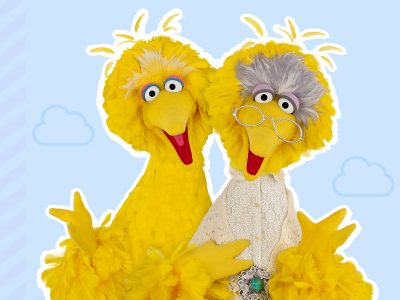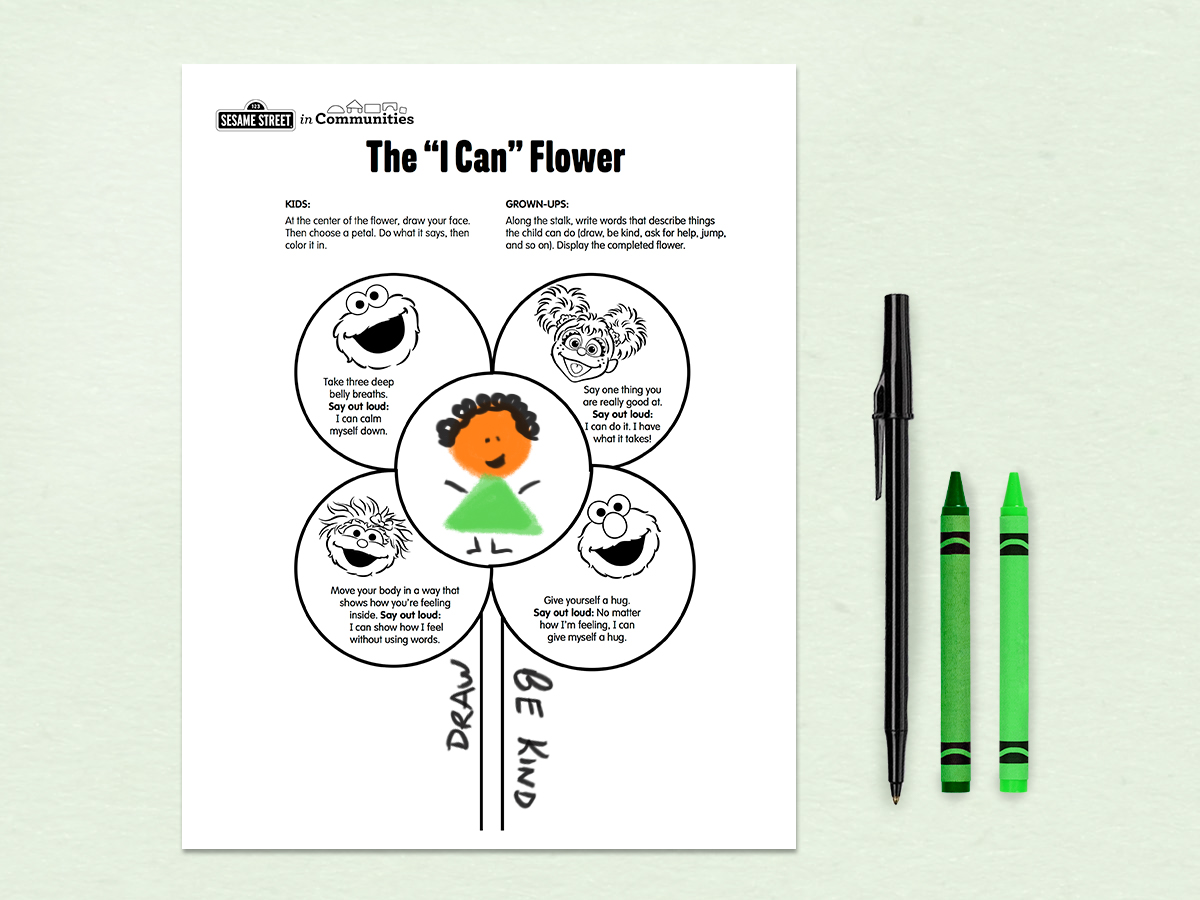
Sesame Strong, Session 2: I Am Special
Share confidence-boosting strategies to build children’s resilience!
Welcome to Session 2. This week is all about helping parents build their child’s self-esteem.
You’ll learn strategies to share with parents and explore resources they can use to practice. This mini-session will help you remind caregivers that they can help their children cope with challenges and build confidence!
Download this week’s overview and the caregiver take-home packet.
Remember: As with all Sesame Strong bundles, you can share the messages, strategies, and resources with caregivers in many ways (not just in a workshop setting). Keep it simple, and do what works for you!
1. Gather & Share
Gather & Share
- Consider beginning your parent mini-workshop with a mindfulness moment.
- Check in with caregivers. How did the Sesame Strong activities go last session? What was your favorite resource? Any challenges? Questions?
- Introduce this session’s Big Idea (the “why”): Confidence and self-esteem give children strength to cope with challenges.
- Then, share this session’s Strategy Spotlight (the “how”): Give yourself a hug.
Explain that when children face challenges, big and small, they may also experience big feelings like frustration, disappointment, and doubt. When big feelings happen, we can help by giving and receiving hugs…kids can even give themselves a hug!
2. Me Time
Me Time
We know all children have big emotions. Remind parents that it really helps children when grown-ups stay calm. It’s not easy, but it’s possible. The Mindful Parenting article offers suggestions that caregivers might try, like staying present in the moment and being aware of their own feelings.
Distribute the article, and ask parents to underline tips or points they’d like to remember.
To help caregivers practice keeping calm, you might:
- Lead a deep-breathing exercise or meditation.
- Ask parents to write down a positive affirmation and repeat it.
- Ask parents to think about a time or place when they felt calm so that they might focus on this moment in stressful times.
- Have parents repeat after you, “I’m having big feelings, too. I need to calm down so that I can help you.”
3. Explore Together
Explore Together
Safe, nurturing touch supports healthy development for kids—and grown-ups! When we begin to doubt ourselves, we can tune into our body to help feel grounded in the present and calm our minds.
Invite parents to give themselves a big hug. Squeeze harder! Doesn’t that feel good? Hugs help and hugs heal, and hugs are key to kids’ healthy development. But they don’t always require two people! Encourage parents to watch this video at home with their kids and practice self-hugs. Remind parents that it’s a good idea to practice these hugs in calm moments, so that they come naturally in emotional moments.
If hugs are a physical way to build children’s self-esteem, a thoughtful way is to celebrate their strengths. The What I Am music video features kids, grown-ups, and whole families calling out things that make them strong. At home, parents might watch with their children and sing and dance along. Together, they can write down three positive statements about themselves as a family, such as, “What we are is supportive!”
4. Read Together
Read Together
Talking about what makes you a loving family strengthens your connection to each other. The What We’re All About digital storybook describes the strengths and passions of some Sesame friends. Encourage parents to through the story with their children and take turns answering the questions.
Parents might ask children, “What are you all about?” Asking daily is a great way to keep kids’ goals, hopes, and values top of mind.
5. Play Together
Play Together
We can help boost children’s confidence by reminding them of all the things they can do. Share this coloring page with parents and encourage them to sit, talk, and color together with their children. Kids can draw themselves in the center of the flower and follow the great ideas their Sesame friends have for feeling strong and capable.
6. Friendly Reminders & Notes for Next Time
Friendly Reminders & Notes for Next Time
Remind
- Questions are always welcome. Share with parents the best way to contact you with questions.
- Review the date and time for next session’s mini-workshop.
- Thank parents for their partnership and participation.
Reflect
- What went well?
- What could I do differently for the next session?
- Who might I ask for help?


